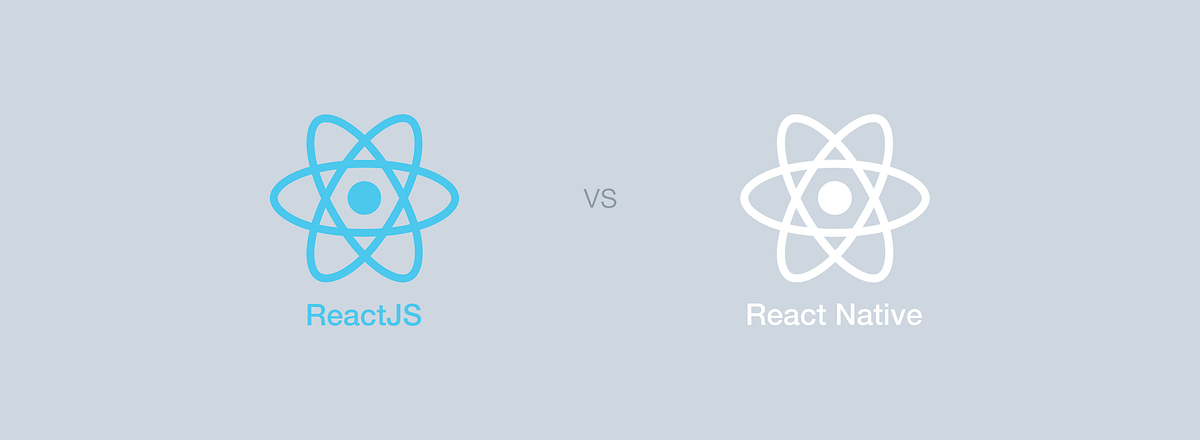React vs. React Native: Let's look into their strengths, limitations, and best use-cases in our latest article.
More...
In this article, we will explore the differences, strengths, and best use-cases for both technologies.
Whether you're a developer deciding between React Native and React or just curious about their unique advantages, you're in the right place.

React Native Vs React: Key Distinctions
React Native and React both hail from the Facebook family, serving different development purposes. Here's what sets them apart:
Origin and Purpose
React is a JavaScript library by Facebook, designed primarily for crafting dynamic user interfaces for web applications. Its component-centric approach is favored in numerous web development endeavors.
On the flip side, React Native takes React's capabilities to the mobile scene. As a framework, it's all about building native mobile apps using JavaScript and React. You can create top-tier iOS and Android apps without the need for Swift, Java, or Kotlin.
Performance Comparison
React leverages the virtual DOM, which guarantees efficient updates and solid performance for web applications. React Native, with its native modules, ensures near-native performance on mobile platforms.
Development Environment and Tools
For React, tools like Create React App, Webpack, and Babel are commonly used. In the React Native universe, developers often turn to tools such as Expo and React Native CLI to streamline their workflows.
Strengths and Limitations
React's prowess comes from its flexibility, component reusability, and substantial community support, making it a top pick for web development. However, it's dedicated to the web.
React Native is where web meets mobile. It's all about crafting genuinely native apps and tapping into device-specific functionalities. But, remember, intricate projects might sometimes demand platform-specific coding.
React | React Native | |
|---|---|---|
Origin | Developed by Facebook | Extension of React for mobile |
Purpose | Building dynamic web UIs | Building native mobile apps |
Strengths | Component-driven, vast community | Access to native functions, reusable code |
Limitations | Web-focused | May require platform-specific code at times |
Strengths Of React
React is celebrated for its component-centric design. This not only allows for reusability but also leads to a cleaner, more maintainable codebase. The Virtual DOM ensures applications remain sprightly and reactive.
With a massive community, React users benefit from an abundance of resources, tutorials, third-party tools, and libraries. This thriving ecosystem means developers can swiftly address challenges and stay current with best practices.
In summary, React is:
Strengths Of React Native
React Native is a beacon for developers keen on native mobile app development without the grind of mastering multiple programming languages. It comes with native modules and components for tapping into device-specific features like the camera or GPS.
Developers also appreciate React Native's 'hot-reloading', which showcases real-time results, accelerating the development pace. Plus, since it's React at its core, you can reuse code between web and mobile.
React Native's strengths are:
Limitations Of React
React's primary drawback is its web-only focus. For mobile apps, developers might look to other solutions or pair it with platforms like Cordova. Moreover, while its extensive ecosystem is a boon, it can sometimes be daunting for newcomers trying to pick the right tools.
Limitations Of React Native
While React Native is a champion of cross-platform development, there are times when developers have to resort to platform-specific coding, especially for intricate designs or to tap into specific native features. Also, while it's on a growth trajectory, React Native might lag in supporting the freshest native features immediately.
React Native Vs React: Suitability
React is the undisputed champion for web applications with its dynamic UI crafting abilities and rich ecosystem. React Native is tailor-made for mobile apps. Whether starting a new mobile project or integrating a web app with mobile, React Native's toolset simplifies the process.
Conclusion
The React vs. React Native decision boils down to your target platform. React is unmatched for web-focused projects, but if mobile is your battlefield, React Native brings a potent toolkit to the table.
Both, with their distinct strengths, are testaments to Facebook's dedication to equipping developers with state-of-the-art tools. When wielded correctly, they're game-changers in building efficient, responsive, and top-notch applications.